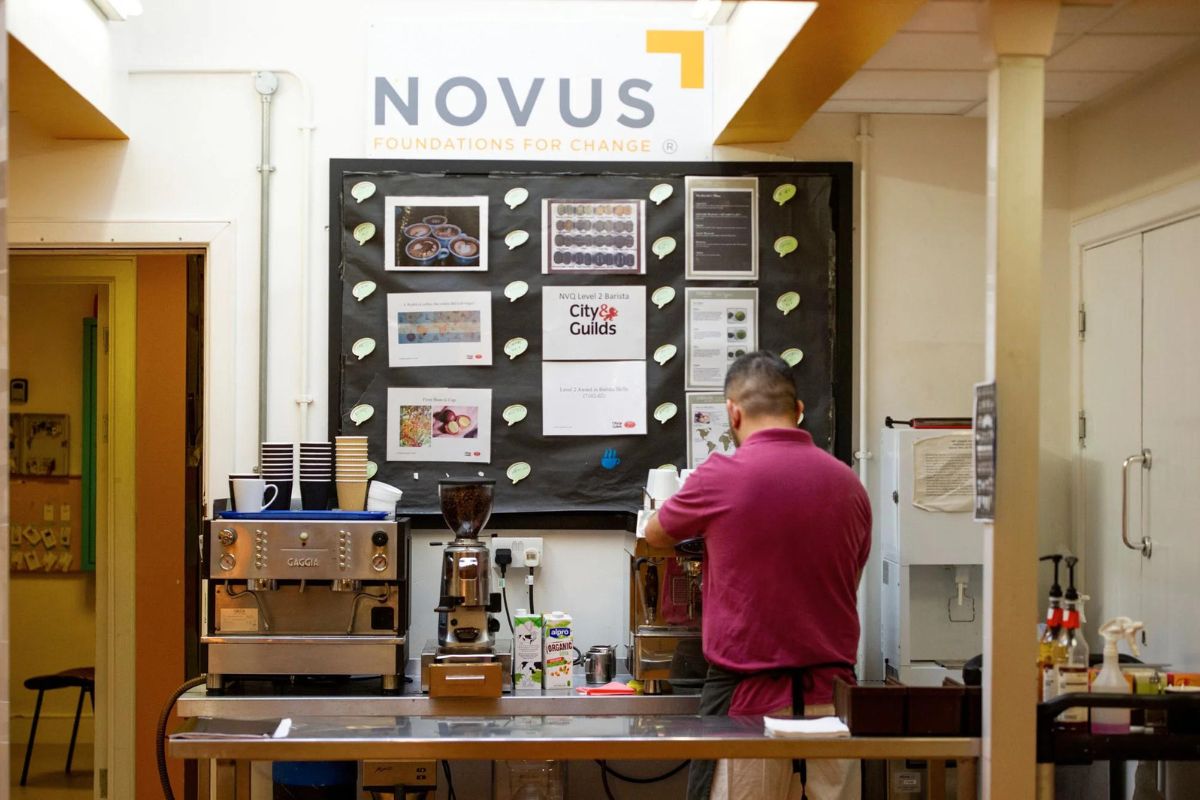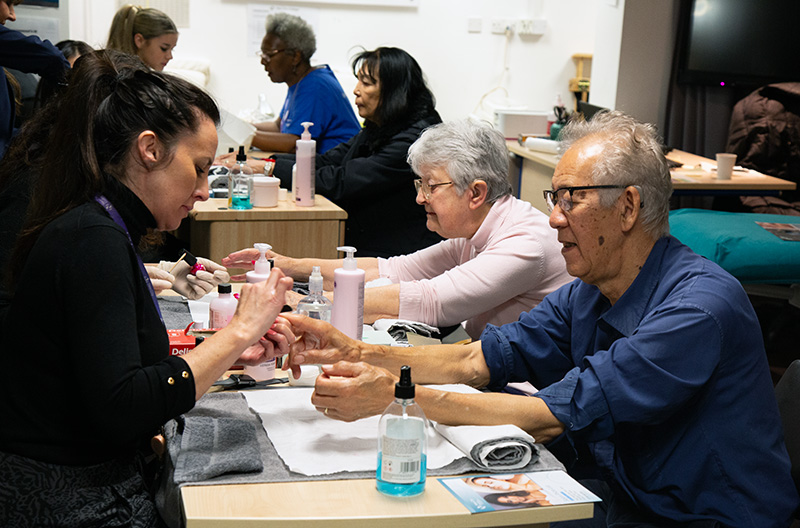PUPILS FOUR TIMES LESS LIKELY TO RECEIVE SUBSTANTIAL GUIDANCE ON APPRENTICESHIPS THAN UNIVERSITY

Careers education remains patchy despite recent improvements.
More than a third of (36%) of secondary school pupils don’t feel confident in taking their next steps in education and training, according to “Paving the Way“, new research by the Sutton Trust that gives an up-to-date picture of careers education and guidance across schools in England.
Previous research by the Sutton Trust highlighted a postcode lottery of careers advice across the country.
Since then, the government has set targets for schools built on the Gatsby benchmarks for good careers guidance and established the Careers and Enterprise Company.
Todays’ report finds that while progress has been made, there is still variation across schools, with the research identifying gaps between state schools with more and less deprived intakes, and between state and private schools.
Teachers and pupils were asked about the careers activities on offer at their school, including sessions with careers advisers, employer talks and trips to careers fairs. However, 36% of students said that they had not taken part in any of the activities listed, with state school pupils more likely to say this as those in private schools (38% vs 23%).
Schools in more deprived areas are also less likely to have access to a specialist careers adviser, with 21% of teachers in the most deprived areas reporting non-specialists delivered personal guidance, compared to 14% in more affluent areas.
Today’s research also highlights differences in guidance given to students on academic and technical routes. Nearly half (46%) of 17- and 18-year olds (Year 13) say they have received a ‘large amount’ of information on university routes during their education, compared to just 10% who say the same for apprenticeships.
Paving the Way highlights the importance of young people having interactions with employers throughout their education. Work experience placements are a key part of this and offer young people important insights into the world of work. Despite this, less than a third of 17- and 18-year-olds (Year 13) have completed work experience. The Trust is recommending that all pupils have access to work experience between the ages of 14 and 16.
Today’s report also looks at the barriers to offering high quality careers provision across schools. Almost a third (32%) of teachers in state schools report they don’t have enough funding to deliver good quality careers education and guidance, compared to just 6% in private schools. Around half (51%) of teachers in state schools think there isn’t enough staff time to do so, compared to just over a third (34%) in private schools.
COVID-19 has also had an impact on careers provision. 72% of teachers think the pandemic has negatively impacted their school’s ability to deliver careers education and guidance. Teachers in state schools were more likely to report this than teachers in private schools (75% vs 59%).
As the qualification landscape continues to shift with the recent introduction of T Levels, and further changes expected over the coming years through the Lifelong Loan Entitlement, it is more important than ever that all young people have access to the information and guidance they need to progress into further study or work.
The government’s previous careers strategy set out in 2017 has now lapsed, the Sutton Trust is urging the government develop a new strategy, with cross-departmental links to join up the system and integrate with the government’s broader Levelling Up programme.
To further improve careers provision across schools, today’s report makes a number of recommendations:
- Every young person should have access to a professional careers adviser and a set minimum number of interactions with employers, including work experience.
- Students should receive more information on apprenticeship options, with better enforcement of the Baker Clause, requiring schools to give information on a range of pathways.
- More time should be earmarked in the curriculum to deliver careers education and guidance.
James Turner, Chief Executive of the Sutton Trust, said:
“All young people – whatever school they go to and wherever they live in the country – must have access to high-quality support to help them in their journeys through education and work.
“As the government looks to make further changes to the qualifications and funding landscape, it is more important than ever that young people have the information, advice and guidance that they need to feel confident in their next steps.
“The government must urgently develop a new national strategy on careers education and all schools, especially those serving the poorest communities, should be supported to offer the highest-quality provision”.
Sarah Hannafin, senior policy advisor for school leaders’ union NAHT, said:
“Good quality careers education, information, advice and guidance (CEIAG) is important to all pupils in our schools. We have continually stressed that CEIAG should be appropriately resourced and of a high standard in order to support pupils to make the best choices and maximise their life chances.
“Despite support for careers education from school leaders, the current provision remains underfunded and therefore inconsistent. There is no specific funding for schools, nor any budget with which to provide impartial and independent CEIAG or work experience.
“All schools must be provided with the resources they need to provide high quality careers education. There is a need for an increased number of independent quality assured careers advisors as part of that resource.
“Careers education shouldn’t be left to secondary schools alone. NAHT believes that careers education, linked to raising aspirations, should begin at primary school by helping pupils to understand how working hard at school can bring fantastic opportunities in later life and giving primary age pupils an insight into different careers.
“Primary Futures, run in partnership with NAHT, works with schools to broaden horizons, challenge stereotyping, for example, by gender, ethnicity and social background, and bring learning to life from an early age. Primary Futures provides primary-aged children the chance to meet people beyond their immediate family networks. People who can help challenge the stereotypical views that can often limit children’s ambitions and life choices.”

Geoff Barton, General Secretary of the Association of School and College Leaders, said:
“The main reason that there is variation in careers advice is that the government dismantled the national provision about a decade ago and transferred the responsibility to schools while also squeezing their funding. Since then it has endeavoured to make up for lost ground with only partial success.
“Careers advice is a specialist service which requires professionals who are trained experts in the field and can provide impartial guidance on the full range of routes that are available to young people. This report draws attention to the need for more information on apprenticeship options, for example, which would certainly be helpful. However, the apprenticeships landscape is complex and difficult to navigate and is a case in point where extensive knowledge of a variety of workplaces and apprenticeship vacancies is needed to deliver this sort of guidance.
“While schools and colleges work very hard to source and provide high-quality careers advice they have to do so in the context of severe funding pressures as well as many other demands on their time and resources.
“Regarding the recommendation that all pupils have access to work experience between the ages of 14 and 16, identifying and sourcing work experience placements for 17 and 18-year-olds can be very challenging, let alone for 14 to 16-year-olds. While the principle is a good one, it is difficult to see how this would work in reality. Indeed, one of the main difficulties in delivering the government’s new T-level qualifications at scale is how to source the extensive industry placements which form part of these courses.”

Russell Hobby, CEO of Teach First, said:
“High quality careers education is crucial for fulfilling the aspirations of the next generation and provides them with the essential skills and knowledge needed to thrive in the world of work.
“While many schools do this brilliantly, high quality provision is patchy, particularly for pupils from disadvantaged backgrounds. We need to rethink how we support all young people, not just some, to thrive on their next steps after finishing school. This isn’t only a matter of fairness: by helping every child succeed we’ll build a skilled and competitive workforce to help the whole country flourish.”












Responses